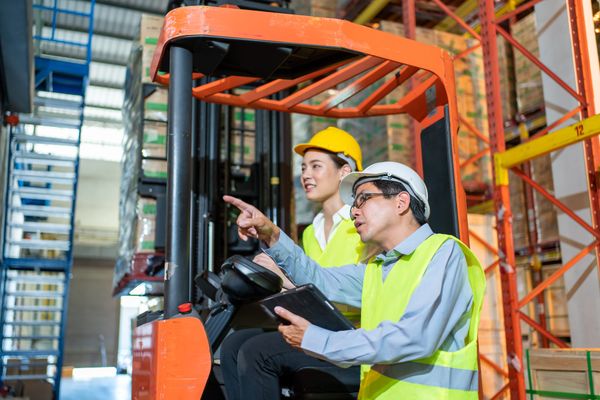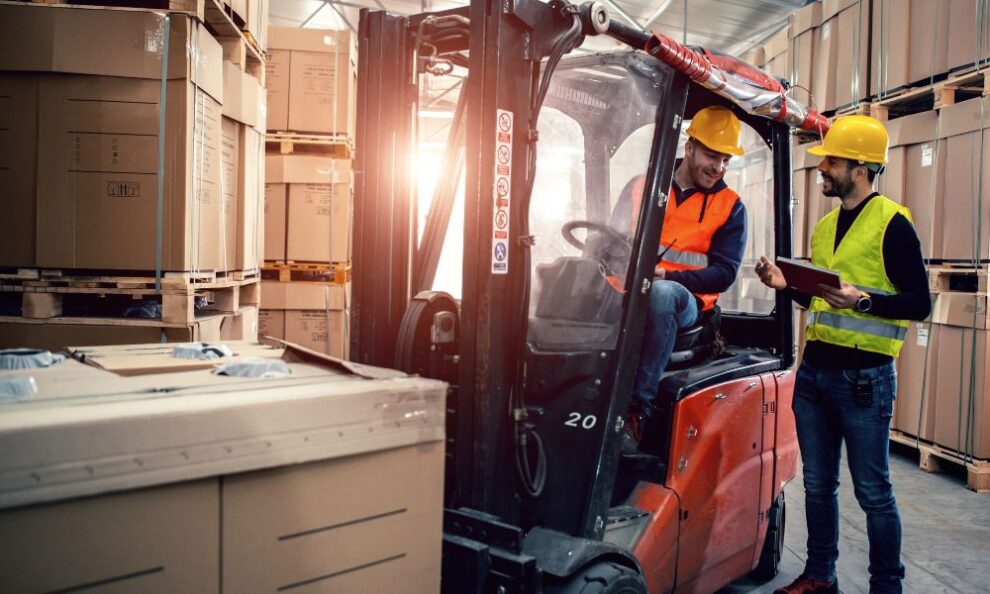In the fast-paced world of logistics and warehousing, a forklift course is more than just a training programme—it’s a pathway to safer and more productive operations. In Singapore, where logistics accounts for approximately 7% of the GDP and employs tens of thousands, equipping workers with the right skills is critical for maintaining the industry’s momentum.
Whether you’re new to forklifts or looking to upgrade your qualifications, understanding the value and structure of a forklift course can open doors to career advancement while keeping safety front and centre.
Why Take a Forklift Course?
Forklifts are indispensable tools in industries ranging from manufacturing to construction. However, their operation demands more than just mechanical intuition. Without proper training, forklifts can become safety hazards, leading to accidents, injuries, and even fatalities.
Key Benefits of a Forklift Course:

- Safety First: Learn essential skills to minimise workplace accidents.
- Career Advancement: Gain qualifications that are highly valued in industries like logistics, construction, and warehousing.
- Regulatory Compliance: Adhere to strict safety and operational standards set by Singapore’s Workplace Safety and Health Council.
- Increased Productivity: Proper training ensures faster and more efficient handling of goods.
In Singapore, improper forklift handling was cited as a contributing factor in 10% of workplace injuries in 2022, according to Ministry of Manpower statistics. A forklift course equips operators with the expertise to avoid such risks.
What Does a Forklift Course Cover?
A comprehensive forklift course is designed to provide both theoretical knowledge and hands-on practical training. Most programmes in Singapore are structured to comply with the requirements of the Occupational Safety and Health Act (OSHA).
Key Topics Covered:
1. Safety Regulations
- Understanding the risks of forklift operations.
- Adhering to Singapore’s workplace safety standards.
2. Machine Familiarisation
- Learning about the different types of forklifts, including electric, diesel, and gas-powered models.
- Understanding load capacities and forklift mechanics.
3. Practical Skills
- Operating a forklift safely in various conditions.
- Mastering load handling, stacking, and unstacking techniques.
4. Maintenance Basics
- Conducting pre-operation checks.
- Identifying common maintenance issues.
Who Should Enrol in a Forklift Course?
A forklift course is suitable for:
- New Entrants: Individuals entering industries such as logistics, construction, or warehousing.
- Experienced Operators: Workers seeking to refresh or upgrade their skills to comply with evolving regulations.
- Employers: Companies investing in staff training to enhance workplace safety and productivity.
In Singapore, many forklift courses are approved under the SkillsFuture framework, allowing individuals to offset costs through government subsidies. This makes it an accessible option for workers and employers alike.
The Cost and Duration of Forklift Courses in Singapore
Cost:
- Basic forklift courses typically range from $300 to $600, depending on the provider.
- Advanced courses or specialised certifications (e.g., for handling hazardous materials) may cost more.
Duration:
- Most courses are completed within 2 to 5 days, making them a time-efficient way to gain essential skills.
Choosing the Right Forklift Course
Not all forklift courses are created equal. Here’s what to consider when selecting a programme:
- Accreditation: Ensure the training provider is certified by Singapore’s Ministry of Manpower or other relevant authorities.
- Practical Training: Look for courses that emphasise hands-on learning with real forklift equipment.
- Instructor Expertise: Experienced trainers can provide valuable insights and ensure you receive top-quality instruction.
- Class Size: Smaller class sizes often mean more personalised attention during practical sessions.
Forklift Safety: A Shared Responsibility
In industries relying heavily on forklifts, safety isn’t just the operator’s responsibility—it’s a collective effort. Employers play a key role by:
- Providing ongoing training for their staff.
- Implementing clear safety protocols.
- Regularly maintaining and inspecting forklift equipment.
As a result of stringent safety measures, workplace fatalities in Singapore dropped to a record low of 0.9 per 100,000 workers in 2022, according to the Workplace Safety and Health Council. Forklift courses are instrumental in continuing this trend.
The Future of Forklift Training in Singapore
With rapid advancements in technology, forklift training is evolving to include new elements such as:
- Autonomous Forklift Operations: Preparing workers for the rise of automated material handling systems.
- Virtual Reality (VR) Training: Simulating real-world scenarios to enhance learning outcomes.
- Green Forklift Technology: Emphasising sustainability with electric and hybrid forklift models.
As Singapore continues to embrace innovation, these trends will shape the future of forklift operations, making ongoing training more important than ever.
How to Get Started
If you’re ready to enhance your skills or empower your team, enrolling in a forklift course is straightforward:
- Research Accredited Providers: Check online reviews and consult industry peers for recommendations.
- Assess Your Needs: Determine whether a basic or advanced course aligns with your goals.
- Leverage Government Support: Tap into SkillsFuture credits to offset training costs.
- Book Early Popular providers often have limited but best online betting app slots, so secure your spot in advance.
Final Thoughts
In an industry where precision and safety are paramount, investing in a forklift course is a decision that pays dividends. From enhancing career prospects to reducing workplace risks, the benefits extend far beyond the classroom. As Singapore’s logistics and manufacturing sectors continue to grow, the demand for skilled forklift operators will only increase, making this training essential for success.
By choosing the right forklift course, you’re not just lifting loads—you’re lifting your career and contributing to a safer, more efficient workplace.












